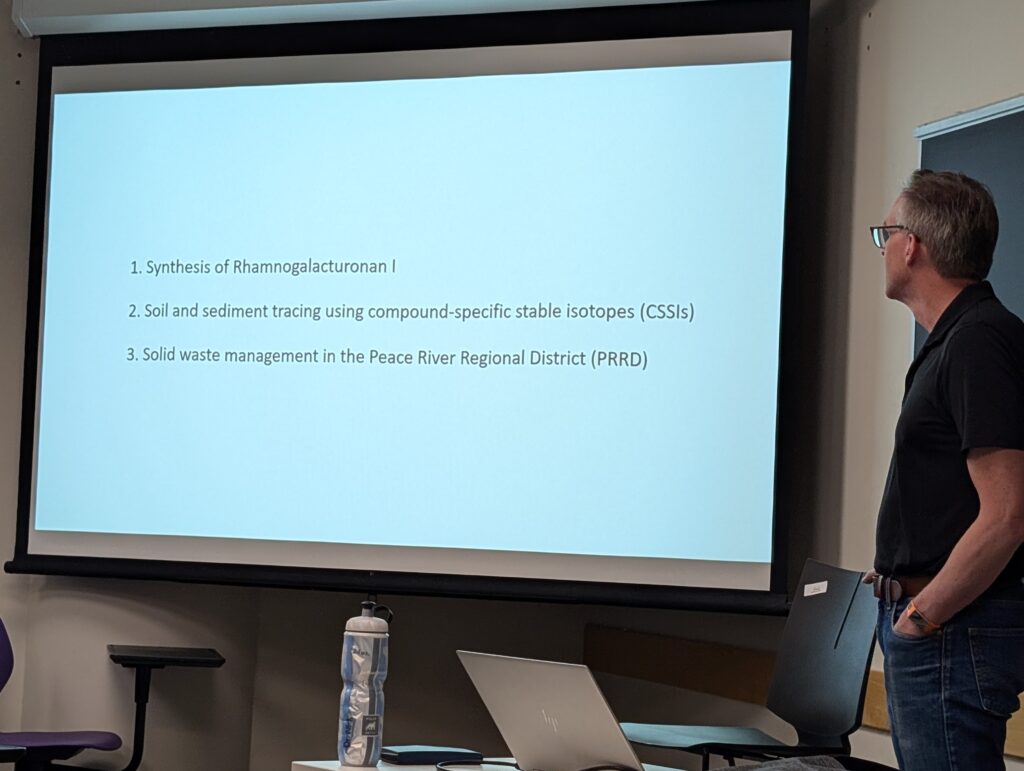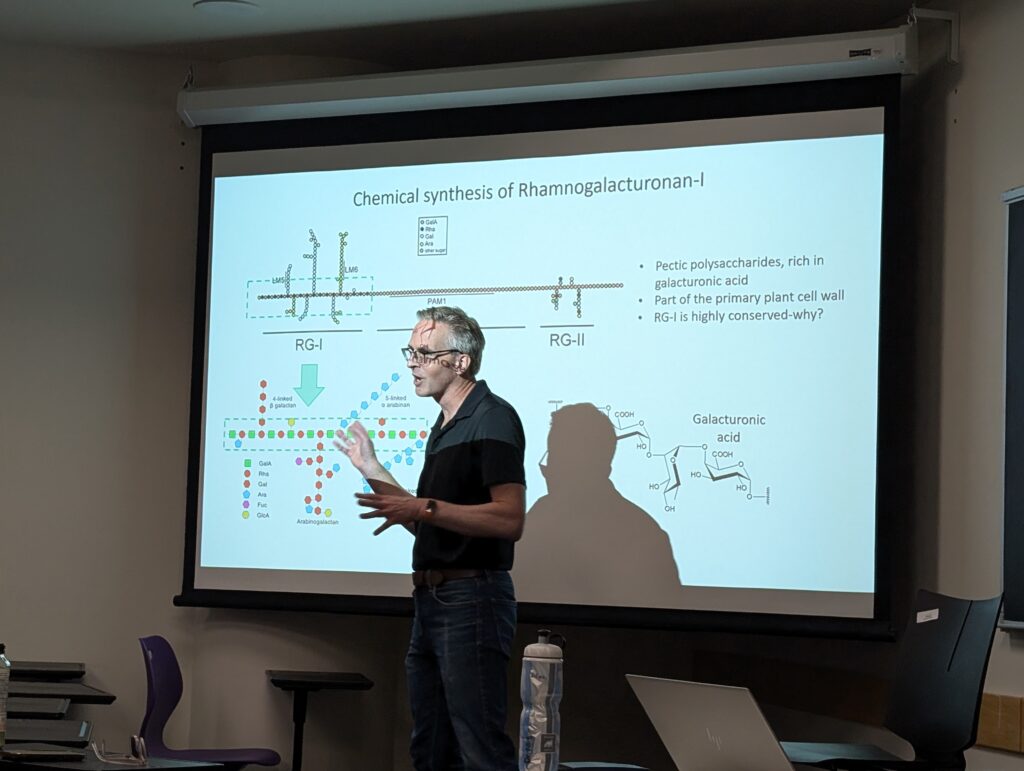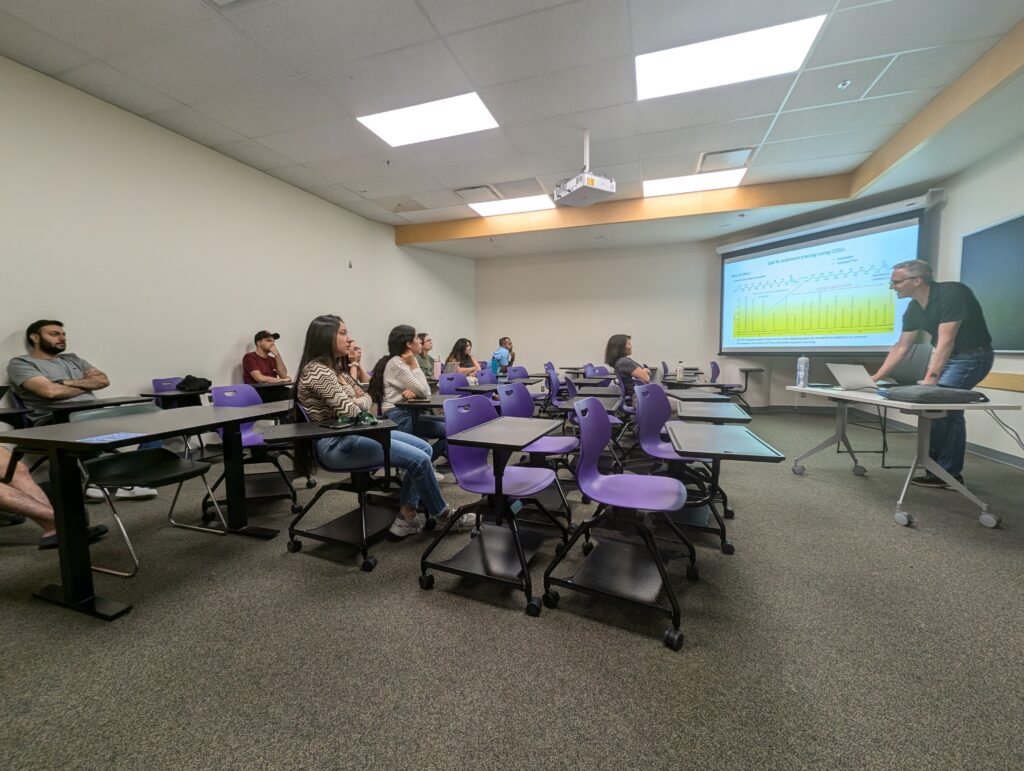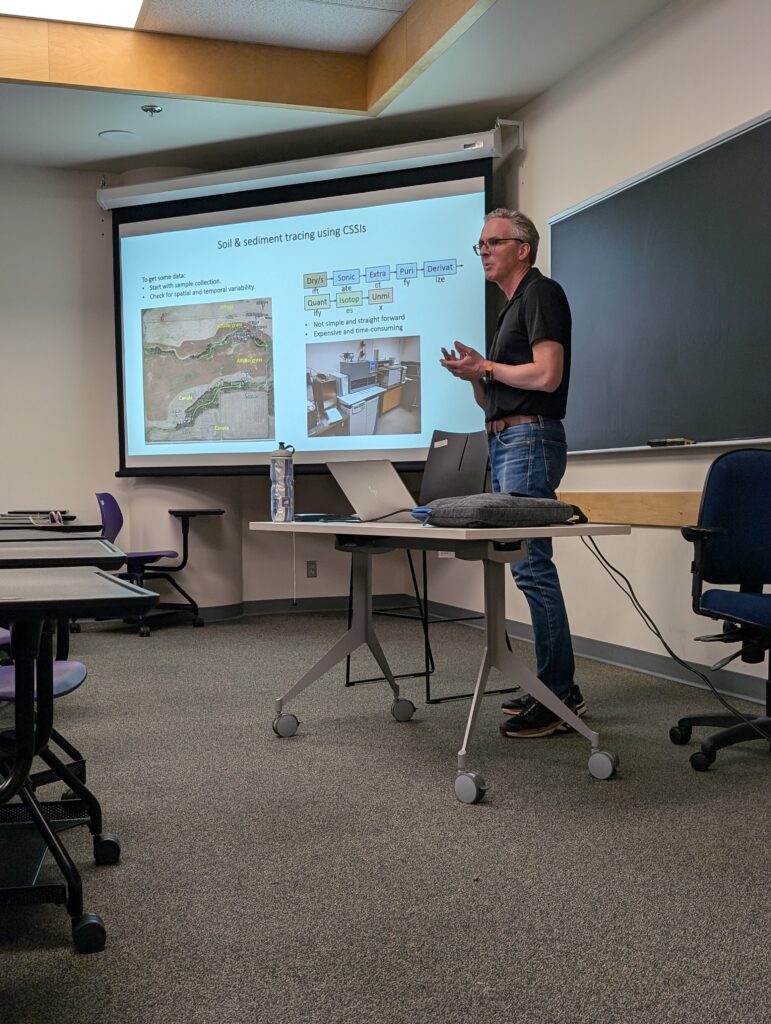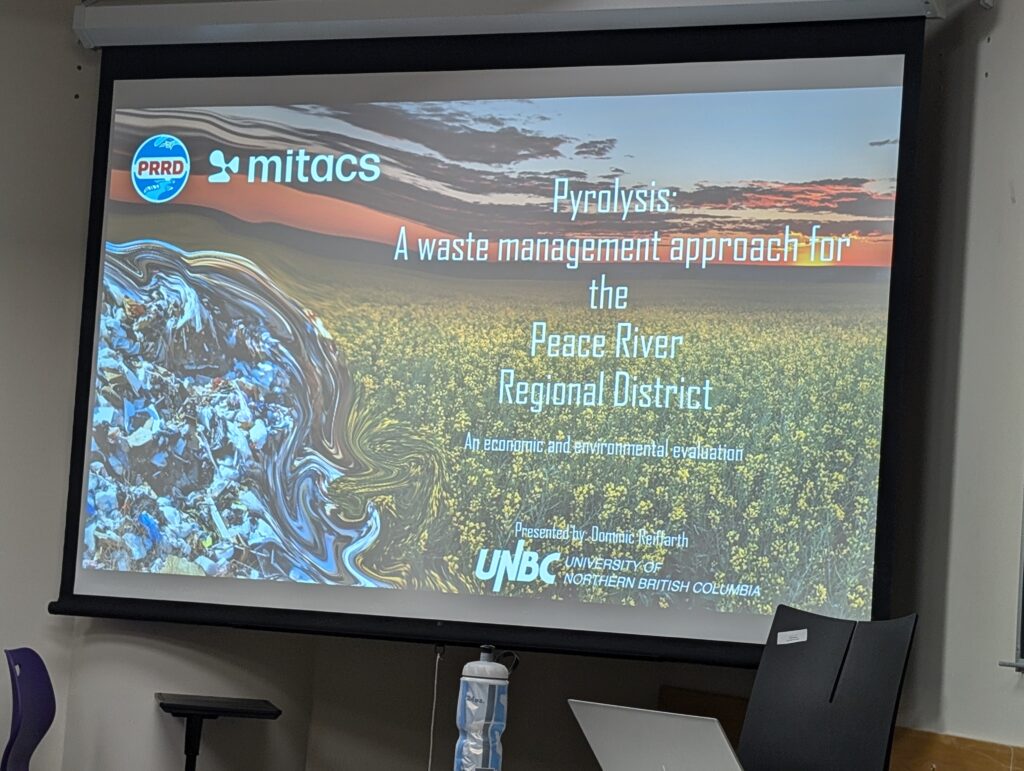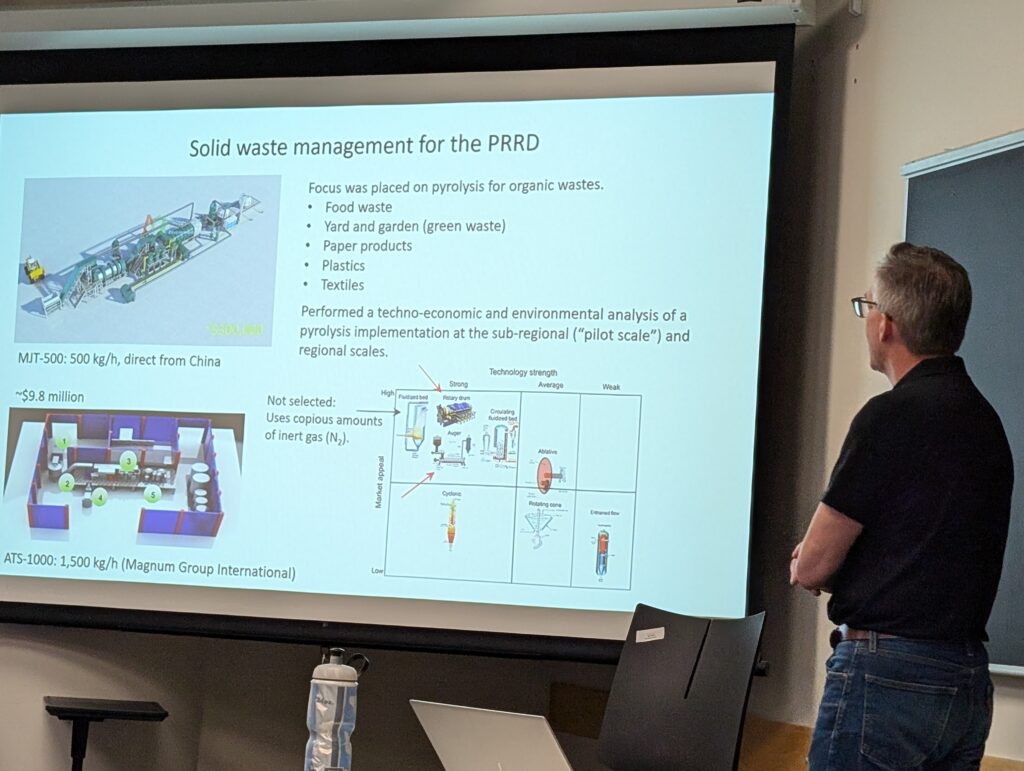Today, we had the privilege of hearing from Dr. Dominic Reiffarth
(Nick) Reifarth, one of the group’s experienced Mitacs postdocs, as he presented a captivating overview of his journey in scientific research at our bi-weekly group meeting at the University of Northern British Columbia (UNBC). Nick’s academic path is a remarkable story of passion and adaptability, spanning the synthesis of organic compounds to advanced environmental studies.
Here are the diverse topics Nick showcased, reflecting his broad expertise and innovative approach to science:
– Synthesis of Rhamnogalacturonan I – Exploring the intricate world of organic chemistry and polysaccharide synthesis.
-Soil and Sediment Tracing using Compound-Specific Stable Isotopes (CSSIs) – Applying his organic chemistry knowledge to trace environmental processes and understand ecological impacts.
– Solid Waste Management in the Peace River Regional District (PRRD) – Tackling real-world problems by developing sustainable practices for waste management.
Nick’s journey from an #MSc to a hashtag#PhD and then as a hashtag#postdoc at UNBC, utilizing the facilities of NALS, illustrates not just a career but a profound dedication to expanding the frontiers of science across disciplines.
His work exemplifies the essence of the MATTER Lab and NALS- : a commitment to groundbreaking research and sustainability. His versatility in moving from the molecular level of organic chemistry to large-scale environmental applications is not only inspiring but also a testament to the interdisciplinary nature of modern scientific endeavors.
Follow us for more updates on how our scientists like Nick are making a difference in the world, one innovative project at a time!
UNBC Faculty of Environment
UNBC Department of Geography, Earth & Environmental Sciences
